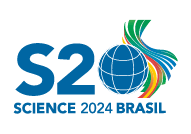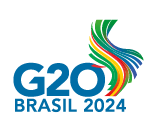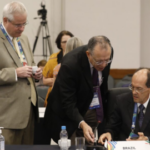Science 20 Brazil highlights the importance of science for global transformation
March 12th | Agência Fapesp
Read article by Heitor Shimizu for Agência Fapesp, published on March 12th:
Fapesp Agency – Representatives from the academies of sciences of 19 countries, the European Union, and scientific organizations from Brazil and abroad met in Rio de Janeiro on Monday (03/11), on the first day of the Science20 (S20) Initiation Meeting.
The meeting, organized by the Brazilian Academy of Sciences (ABC), continues on Tuesday and marked the official start of S20 Brazil 2024 and the process that will result in the production of thematic documents with recommendations and a final declaration, to be presented at the Summit Meeting (S20 Summit, in July) and forwarded to the heads of state and government of the G20.
The G20 is the main forum for international economic cooperation. It plays an important role in shaping and reinforcing global architecture and governance on all major international economic issues. The G20 Leaders Summit will be held on November 18 and 19 in Rio de Janeiro, under Brazilian presidency.
Among the novelties this year is the G20 Social, a space for participation and contribution of civil society in discussions and policy formulations related to the Summit. The G20 Social encompasses the activities of 13 engagement groups, including the S20, the G20 engagement group for science and technology, responsible for promoting dialogue among scientific communities on critical issues and producing recommendations for the G20 heads of government and state.
“Brazil proposes to place at the center of its presidency issues related to global asymmetries in access and development of production of science, technology, and innovation,” said Luciana Santos, Minister of Science, Technology and Innovation, in the opening session of the S20 Initiation Meeting.
One of the points highlighted by the minister was bioeconomy. “When the scenario seems challenging, a window of opportunities opens up for economies that are already low carbon to embark on a green and technological revolution that is in its early stages. It is important to highlight the need for the international community to make trade rules more favorable to emerging green industries in developing economies and to reform intellectual property rights that facilitate the transfer of technologies to these countries,” she said.
ABC is responsible for organizing the 8th edition of S20. Analogous to the G20, the S20 has a non-permanent rotating secretariat and operates as a forum, with its summits held annually, usually before the respective G20 summit. Past editions of the S20 have been held in Germany (2017), Argentina (2018), Japan (2019), Saudi Arabia (2020), Italy (2021), Indonesia (2022), and India (2023). The motto of the Brazilian presidency for the G20 is “Building a Fair World and a Sustainable Planet.” ABC, in turn, has defined “Science for Global Transformation” as the theme for the 2024 edition of S20.
According to ABC, as various themes could be discussed under this broad perspective, it was decided to implement five distinct task forces: Bioeconomy (Driving the world towards a sustainable planet), Health Challenges (Quality, equity, and access), Artificial Intelligence (Ethics, social impact, regulation, and knowledge sharing), Social Justice (Promoting inclusion, ending poverty, and reducing inequalities), and Energy Transition Process (Renewable energies, social and economic considerations).
“By assuming the mission of hosting the G20, Brazil reinforces its role as an influencer and mediator in the search for global solutions. The country emerges as a leader in debates that place science as a protagonist in the quest for solutions to urgent issues,” said Helena Bonciani Nader, president of ABC, sherpa (local leader) of Science20 Brazil 2024 and member of the Superior Council of FAPESP.
At the S20 Initiation Meeting, representatives of national academies of sciences discussed the document prepared by ABC as a basis to guide the production of the document with recommendations for science, technology, and innovation that S20 will prepare for the G20 meeting in November.
“The theme chosen for this meeting, ‘Science for Global Transformation,’ is particularly relevant to us in South Africa and in the southern part of Africa, and the key to this is collaboration and cooperation among partners. We must work together to develop and achieve some of these goals. When we look at health, for example, it is not just about equity and access, but also about providing quality health care, with a holistic and inclusive approach. In terms of social inclusion and sustainability, priorities to end poverty and reduce inequalities are absolutely critical, as is the inclusion of indigenous communities or entrepreneurship, which will enable economic growth,” said Stephanie Burton, interim president of the Academy of Sciences of South Africa.
“We can reduce inequality through technology. We need to seek technologies that improve and encourage diversity, and this is a huge task. We have to develop transformative technological tools that promote equity and inclusion of diversity. A good example is in the development of good automatic and real-time translation, so that we don’t all have to speak the same language, but that we can understand each other speaking in our own language,” said Ashutosh Sharma, representative of the National Academy of Sciences of India.
In addition to presentations by national academies of sciences and scientific organizations of G20 countries, the event features conferences and will include the presentation of a new initiative from the United Nations Educational, Scientific and Cultural Organization (UNESCO) focused on science learning for education, the UNESCO Global Alliance of Science Learning for Education.




